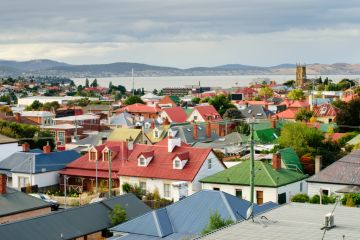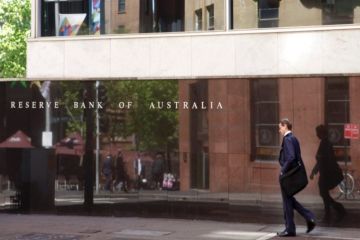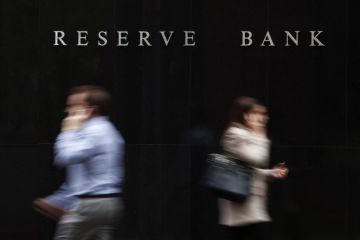All the questions you had about the recession that you were too embarrassed to ask
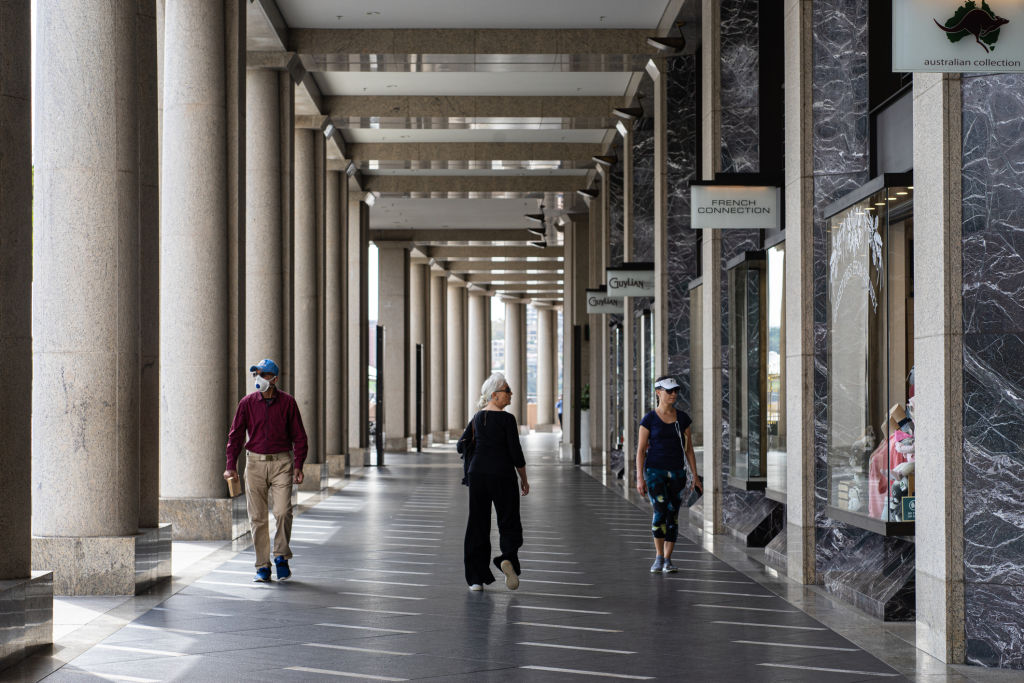
The widespread economic impact of the coronavirus outbreak has pushed Australia into a recession, with negative economic growth recorded for the first time in nine years.
Some economists believe this is just the start of the most calamitous global economic contraction since at least the early 1930s, when millions of people lost their jobs.
In Australia, economists expect the unemployment rate will jump from about 5.2 per cent to at least 11 per cent.
NAB chief economist Alan Oster says the economic crisis triggered by the pandemic is “very different to anything we have seen before”.
It has not been led by a loss of confidence in financial institutions nor a credit crunch, such as led the 2007-09 global financial crisis. Nor has it been triggered by high interest rates, wages outbreaks, a catastrophic loss of consumer confidence, natural disasters, or pressure from debt defaults and economic contractions elsewhere.
The economic crisis is the result of a deliberate effort by governments here and around the world to curb community movements and, therefore, business activity as they try to protect their populations from widespread infection.
Sharemarkets around the world have been pummelled as companies abandoned their earnings forecasts and investors sold equities in favour of cash.
The federal government ushered in a $130 billion JobKeeper assistance package to help businesses keep workers on the payroll. So far, federal government measures to alleviate the devastating economic impact are forecast to cost more than $320 billion over the next four years.
Domain economist Trent Wiltshire suggests this will be the biggest economic downturn since the Great Depression.
A survey of dozens of leading US economists conducted by the Initiative on Global Markets (a unit of the University of Chicago’s Booth School of Business) found the overwhelming majority believed it was necessary to tolerate a sharp economic contraction until the infection spread had declined. And a similar number said lifting lockdowns early would cause even more economic damage.
None of the economists surveyed by the IGM disagreed with the necessity to curtail economic activity during this period.
The OECD’s secretary-general Ángel Gurría told ABC’s The Business program the enforced shutdown of business activity reflected the moral duty of governments to protect the people ahead of economic goals.
“We have to fight contagion,” Mr Gurría said. “We have to stop the spread for human reasons, for ethical reasons, for moral reasons, but also for very pragmatic reasons in that the longer it lasts, the deeper we will be in the hole, the more GDP we will lose and the longer it will take to get out of the hole.”
What does it mean for Australians?
What all this might mean for Australians, and how it might affect investments such as property values, is far from clear. Accurate economic and financial forecasts are simply not possible yet, and that is because the world’s major economies are still a long way from reining in COVID-19.
Indeed, there is as much vigorous debate about the economic recovery path as there is about the trajectory rate for COVID-19 infections.
Some economists initially suggested economic growth would snap back by the end of the year, once the peak of the virus has passed. Others now suggest economic growth will contract sharply in the near term and only slowly recover.
Much of what lies ahead will depend on how swiftly the COVID-19 caseload in each geographical and economic region can be minimised, how soon an effective vaccine might be available and whether consumer and investor confidence bounces back strongly.

What is the definition of a recession?
A recession in Australia is generally defined by contractions in economic growth over two consecutive quarters. Some economists also consider a recession has occurred if there is no economic growth over 12 months, or if the unemployment rate increases by more than 1 per cent.
The US has a more complex definition. The US National Bureau of Economic Research deems a recession has occurred when there is “a significant decline in economic activity spread across the economy, lasting more than a few months, normally visible in real GDP [gross domestic product], real income, employment, industrial production and wholesale-retail sales”.
Europe’s Centre for Economic Policy Research takes into account the various monetary policy settings of the many countries that make up the European Union as well as the fact that economic data from those member nations is not consistently rigorous.
In general, the European definition is two consecutive quarters of contracting economic growth, considering declines in statistical markers such as quarterly GDP, employment rates, industrial production, business investment and consumer activity.
The Australian economy shrank by 0.3 per cent in the March quarter, and economists, the Treasury and the RBA expect the June quarter to be the worst since the 1930s.
How bad might this recession be?
In short form, very bad indeed.
At the Reserve Bank of Australia’s special meeting on March 18, board members noted Australia was likely to experience “a very material contraction in economic activity” through to at least the end of June “and potentially longer”.
NAB’s economists had expected real GDP would contract 0.1 per cent in the March quarter, but those forecasts were published on March 16 before the profound effects of business shutdowns became apparent.
NAB’s Mr Oster told Domain he expected Australia’s economy would contract by 4 per cent this calendar year, but he warned that any forecasts might prove wrong because there was exceptional uncertainty around how the pandemic would play out.
“We have forecasts for the best part of [negative] 7 per cent for the June quarter and down 1 per cent for the September quarter, before bouncing back. So we are saying down 4 per cent [in calendar year 2020], up 4 per cent, but the level of GDP does not get back to where we were before all this until the end of 2021.”
In a podcast published by NAB on March 30, Mr Oster said this downturn would make any other since World War II appear “benign”.
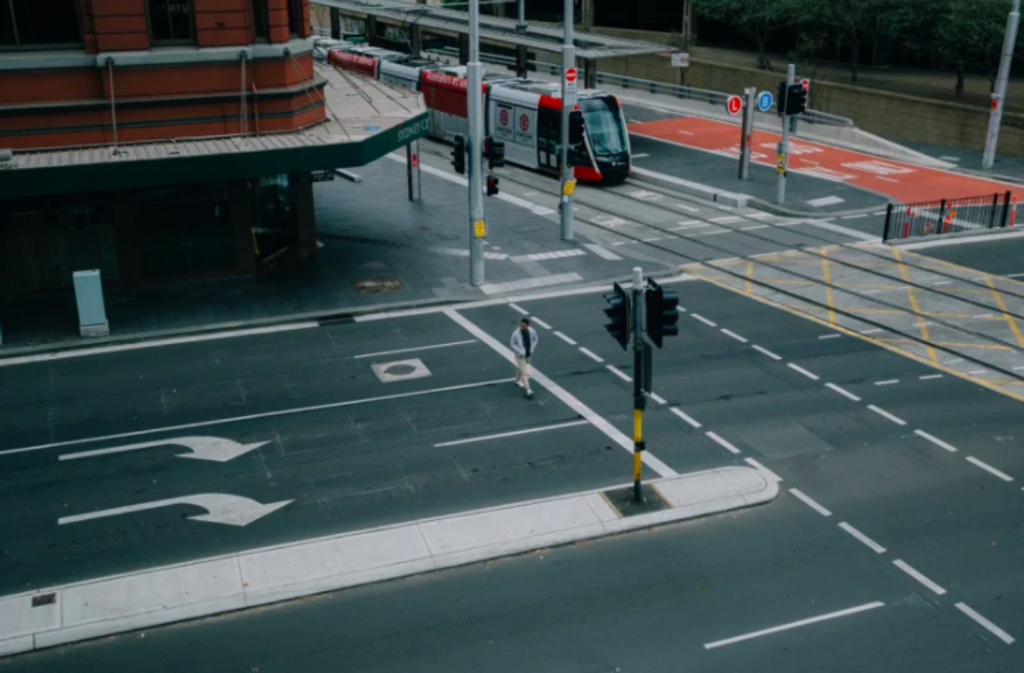
St George Bank’s chief economist expects GDP will contract as much as 8.5 per cent in the current quarter, and 5 per cent over the whole of 2020.
The depth and length of this economic crisis, though, will be dictated by how long the pandemic lasts and whether a second wave of infection emerges in 2021.
In the meantime, Mr Oster warns Australia’s unemployment rate is likely to hit 11.5 per cent by June, and possibly higher, a figure not reached since the last recession.
Which brings us to the next question.
When was Australia’s last recession?
The last recession in Australia was in 1991. The downturn began in early 1990 and lasted until 1992, when unemployment hit 12 per cent.
Official interest rates had climbed as high as 17.5 per cent by early 1990 as part of central bank efforts to hose down inflationary expectations among Australian investors. Mortgage rates for residential property were 17 per cent for much of 1989 and 1990, while interest rates on business loans exceeded 20 per cent.
The subsequent crunch hit businesses very hard from the March quarter of 1990 when the Reserve Bank of Australia conceded various surveys had registered “a significant decline in activity and confidence in the business sector”. Major banks and building societies collapsed, retailers and construction companies failed, and the economy took many years to recover.
More recently, Australia was the only nation in the world not to record a recession during the tumultuous global financial crisis that lasted from mid-2007 to 2009. While Australia did come close to a recession, it was kept from the brink by extraordinary fiscal stimulus packages that pumped cash into consumers’ pockets, spurring spending across the economy.

How long does a recession last?
The obvious answer there is “until it ends”, or until economic growth of some order resumes.
St George Bank’s Besa Deda says most recessions in Australia since the 1960s lasted two quarters, or six months. The exception was the 1981-83 economic downturn when GDP contraction lasted through six of seven quarters.
That prolonged downturn triggered a major restructuring of the Australian economy, beginning with a wages consensus between federal government, the business community and unions. Ultimately, it led to widescale reform of the financial market, the free-float of the Australian dollar, licences issued for foreign banks to operate in Australia, and profound changes to rules around what kinds of institutions could issue mortgage or personal loans.
Can a recession be avoided?
Australia did avoid a recession in the 2007-09 financial crisis by pump-priming the economy with cash through direct handouts, massive building programs, small business incentives and more.
But this is an altogether different scenario. Australia, like most Western economies, is already in the grip of recessionary activity, brought about by the need to curb people’s movements to limit the spread of the potentially deadly virus.
“The short answer is ‘no’,” Domain’s Mr Wiltshire said, adding that this was “a policy choice” to limit infection.
“What the federal and state governments are doing is prioritising businesses,” St George Bank’s Ms Deda said. “And they are trying to help viable businesses get through this in order to limit a rise in job losses.”
The funding now being provided by the federal government and the state governments is intended to keep people on the payroll and at least fed and sheltered until the peak of the pandemic has passed.
The term being used is “hibernation”, although the world and businesses, and the way we live, undoubtedly will have changed when restraints on movement eventually are lifted.
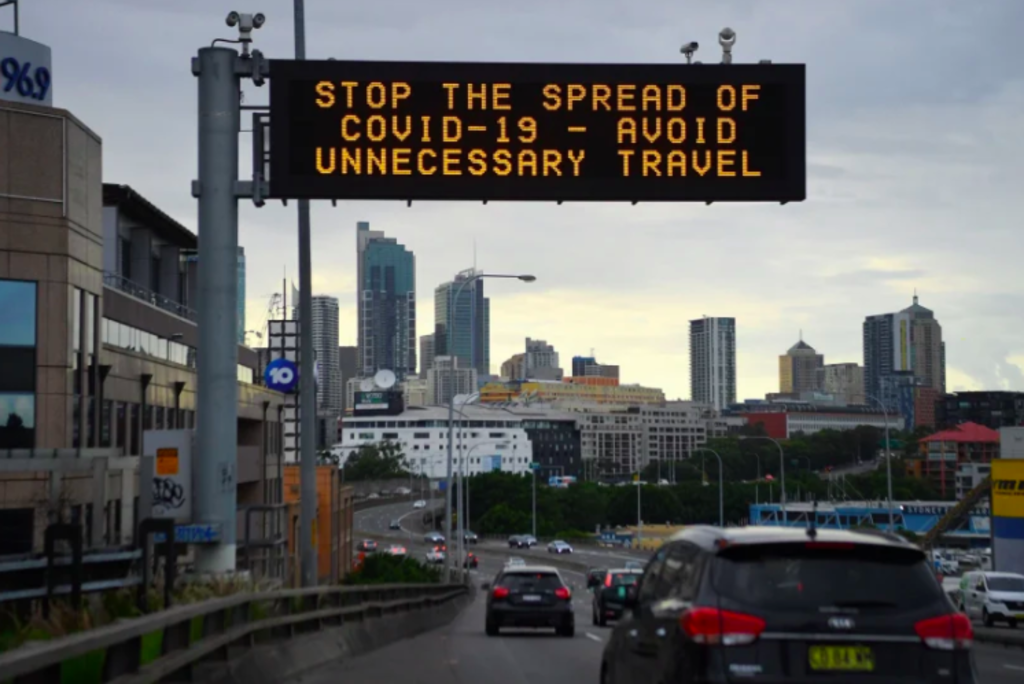
What does a recession mean for everyday people?
NAB’s Mr Oster put it starkly. Recessions, he said, should be avoided as much as possible because, while the amount of economic output lost might be dire, worse was the very great personal impact on people’s lives.
“They are so destructive and they are brutal,” Mr Oster said. “You don’t have a job, and you are very worried about whether you will lose your job if you have one. People lose hope, they lose their businesses, and they lose focus on their goals. It can lead to suicides and mental health issues.”
The economic setback can cause generational crises: people rendered unemployed may struggle to regain a foothold in the jobs market, while others might elect to permanently retire from the workforce.
St George’s Ms Deda suggested that even with the federal government’s stimulus measures announced so far, “I would still suspect households are worried about their job security … and, therefore, how long is the economic activity going to be like this”.
She noted share markets had slumped 30 per cent since late February, when concern mounted about the rising number of COVID-19 cases outside China, so many households might be seeing the economic effects through declines in the value of their superannuation funds.
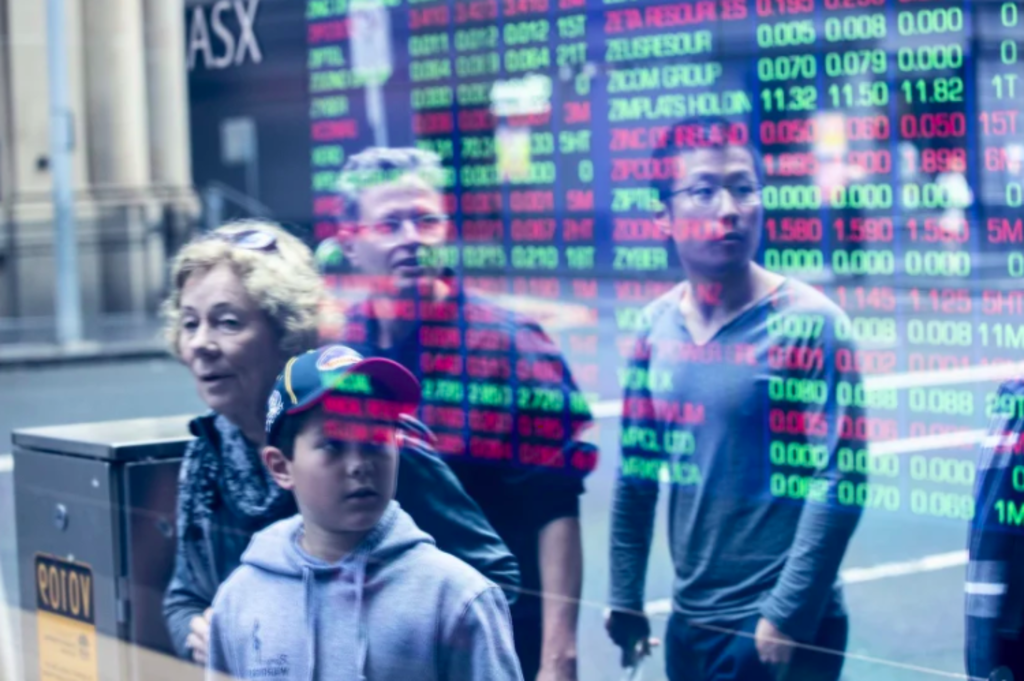
How does a recession affect the property market?
For people with secure income and a firm deposit in hand, this may become an excellent opportunity to buy property.
For almost everyone else in the property market, the near-term outlook is for a sharp fall in prices. How long it takes for prices to rebound will depend on how long the economic downturn and associated levels of unemployment last.
Mr Oster said he would “not be surprised to see residential property prices down 10 per cent over the next 12 months”.
While Mr Oster noted a decline of 8 per cent in property prices “normally … will cause you grief”, he emphasised that banks were not going to foreclose on property owners in distress during this downturn.
Instead, the banks will allow some affected home owners to pause repayments and will capitalise the interest owed on a mortgage – adding it back to the outstanding amount – and banks will possibly discuss extending the loan period.
UBS economists had tipped a 5 per cent increase in property prices this year, but they abandoned their forecasts and now expect a decline. How much, they are not yet saying.
St George Bank’s Ms Deda also expects a decline, but the group is not providing forecasts on dwelling prices because there are far too many uncertainties.
“The number of housing transactions will fall, consistent with the rise in uncertainty,” Ms Deda said. “We would expect dwelling prices to decline over the next few months … and building approvals to decline further.
Mr Wiltshire noted the ban on open-for-inspections and in-person auctions would restrict the volume of transactions, and listing are down “a little”. Clearance rates were “soft”, and many properties had been withdrawn from auction.
He suggested there would be “a clear lull” in property transactions, but that might be followed by a big “bounce-back” in the property market when restrictions on movements were lifted.
In other words, people will defer their transactions, leading to pent-up demand later.
Will I still be able to get a home loan during a recession?
Yes, as long as you have a steady and secure source of income that is capable of meeting the lender’s requirements for the loan you are seeking.
You will still have to pass all the usual checks on capacity to pay, liabilities and assets.
“Banks are still open for business,” Ms Deda said, adding there were quite low variable rates available for home owners.
How can I prepare for the recession?
Tricky question. The short answer is: you can’t – at least not this time around. But Ms Deda suggested this was an excellent time to get organised.
“Doing some planning around household budgets for the next year is wise,” she said. “Read up on the stimulus measures and how they apply to you. Make yourself aware of what all those measures are, what help you can access. Be in touch with your financial institution and make them aware what is happening to you.”
“Trying to plan ahead, and figuring best-case and worst-case scenarios, is important in this time.”
We recommend
Three signs you are in mortgage prison and how to break free
RBA holds the cash rate at 4.35 per cent as inflation slows
We thought you might like
States
Capital Cities
Capital Cities - Rentals
Popular Areas
Allhomes
More
